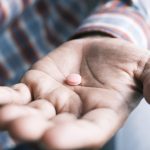What are Natural Medicines?
As practitioners, we have a duty to protect your patients and ensure that anything prescribed to them is safe. This means avoiding medication interactions, but do we know everything our patients are taking?
Checking for other prescription or over the counter medicines is second nature, but for practitioners who don’t work in the area of integrative medicine, it’s easy to forget to ask patients about any natural or alternative medicines they might be taking when prescribing.
To make it more challenging, patients may not even realise they are taking anything that could be potentially harmful or affect their treatment. Natural medicines are not just herbs and potions, they cover food, supplements and a range of other substances.
How effective are natural medicines?
While the perception of natural medicines may be that of a bunch of herbs or sniffing essential oils, in reality, many natural medicines are evidence based and have been widely tested and researched. For example, St John’s Wort has a great deal of evidence to demonstrate its effectiveness in treating depression, with some studies showing it to be just as effective as mainstream antidepressants.
Natural medicines are increasing in popularity with 80% of patients worldwide using some form of non-conventional medicine. It’s important for GPs to be aware of the use of natural medicines and the potential for adverse reactions to prescription medicines.
What types of natural medicines are patients taking?
Patients may not think to tell you if they are taking something like St John’s Wort, but this seemingly harmless herbal supplement has severe interactions with a number of mainstream medicines. This is also true of a wide variety of other natural medicines, which is why it’s so important to talk to patients before prescribing. And if they are taking any form of natural medicine, check for potential interactions. Medicinal databases like AusDI, which include natural medicine integration, are the easiest way to do this.
A lot of natural medicines are not things many of us would even think of as a medicine, for example the herb Turmeric, is actually a blood thinner. Many patients don’t consider vitamins as medicines and they may be unlikely to mention them unless specifically asked by their GP.
Some things that can be considered natural medicines and that practitioners should ask their patients about include:
- Vitamins
- Nutritional supplements
- Protein supplements
- Fish oils
- Herbal supplements
- Dietary remedies, e.g. turmeric
- Herbal remedies
As a practitioner it’s important to be open to the fact that patients are likely to be using natural medicines in one form of another and take the time to research wherever possible to stay up to date with relevant information. Have the conversation with your patients and check a drug information database that includes natural medicines, like AusDI, next time before you prescribe.









